I am a beginner, so I need some basic help, understanding how to configure Maxima to give me the desired output.
I am trying to find n, so in Maxima I type the following:
float (solve (575.12=550*(1+0.015)^n))
This gives me:
[203.0^n=1.045672727272727*200.0^n]
I know the solution is 3 but how am I to understand the output from Maxima?
Another example, with the same formula, trying to find r is:
solve (1905.01=1400*(1+r)^12), numer
If I use float() instead of numer, I get the correct result, but I am only interested in the final result from Maxima. r=0.026
float (solve (1905.01=1400*(1+r)^12));
How can I configure Maxima to output simple decimal solutions?
In another question, How to approximate a number to a n number of decimal places?, one of the answers suggest using fpprintprec to control how many digits are printed but it does not work for me. I get the same result. I have also tried to use the function given in https://stackoverflow.com/a/46510883/205696. decimal_places is sometime useful but does not help me in the first case posted here.
I am using:
wxMaxima: 19.05.7
wxWidgets: 3.1.2
Unicode Support: yes
Maxima version: 5.43.0 (x86_64-apple-darwin13.4.0)
Lisp: SBCL 1.5.3


